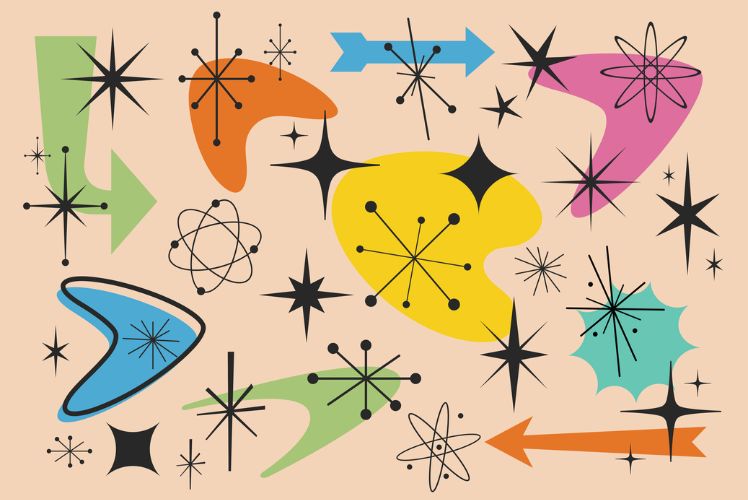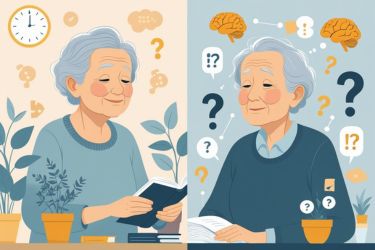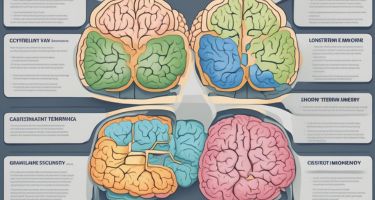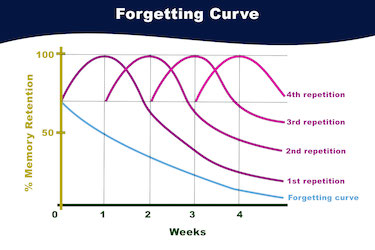Most of us forget the details of what happened last week, but some people remember every day of their lives in clear detail. This rare ability is called hyperthymesia or Highly Superior Autobiographical Memory. For those living with hyperthymesia, every memory—big or small—can feel just as vivid years later as it did the moment it happened.

Having perfect memory can be both a blessing and a curse, as it brings the joy of remembering happy moments but also the challenge of reliving painful experiences. While remembering every birthday or special event may sound amazing, it also means that sadness and regret can be just as hard to forget. This unique condition raises questions about how memory shapes who we are.
Key Takeaways
- Hyperthymesia is a rare ability to remember everyday events in great detail.
- Perfect memory has both positive and negative effects on daily life.
- Our memories help shape our identity and influence how we feel.
Understanding Hyperthymesia and Highly Superior Autobiographical Memory
People with hyperthymesia can remember most days and events from their lives in very clear detail. This section explains what hyperthymesia is, how it differs from other types of memory, and what tests are used to identify it.
Definition and Distinguishing Features
Hyperthymesia, also called Highly Superior Autobiographical Memory (HSAM), describes a condition where a person remembers a huge number of life events with incredible accuracy. People with HSAM often recall the date, weather, or even what they ate on a specific day many years ago.
This remarkable ability focuses only on autobiographical memories, meaning memories from our own lives. It does not mean having an excellent memory for everything. For instance, someone with hyperthymesia may not remember phone numbers or lists better than usual.
Key highlights:
- Hyperthymesia = superior autobiographical memory
- Vivid recall of personal events and dates
- Not linked to photographic memory
It is a rare condition, and only a small number of cases are documented worldwide.
Key Differences: Hyperthymesia, HSAM, and Eidetic Memory
Though the terms are sometimes used together, hyperthymesia and HSAM describe the same rare trait of recalling life events with detail and accuracy. Eidetic memory, often called "photographic memory", is very different.
| Term | What is Recalled | Common in Population |
|---|---|---|
| Hyperthymesia/HSAM | Personal life events | Extremely rare |
| Eidetic Memory | Images, scenes, objects | More common in children, rare in adults |
With hyperthymesia, the memory skill is limited to personal experiences. Eidetic memory refers to recalling pictures or pages as if "seeing" them in one’s mind. Unlike hyperthymesia, eidetic memory is not about personal experiences and is much less stable over time, especially in adults.
Diagnosing and Testing for Superior Memory Abilities
Diagnosing hyperthymesia or HSAM involves a series of tests and interviews. We often see researchers ask individuals to recall what happened on specific dates, sometimes many years ago. They are also questioned about historical events and asked to provide detailed personal memories around those times.
Testing for autobiographical memory is not the same as testing for intelligence or general memory. People are given autobiographical memory tests, calendars, and public records are checked to confirm details.
Medical teams may also use brain imaging scans to look for any differences in the structure or function of the brain. However, there is no simple blood test or scan that can confirm hyperthymesia, so diagnosis depends mainly on the accuracy of these detailed memory tests.
Mechanisms and Characteristics of Perfect Memory
Understanding hyperthymesia requires us to look at how the brain works, especially in terms of memory. We see differences in brain structures, memory processes, and how individuals remember personal events.
Neurological and Psychological Underpinnings
People with hyperthymesia show distinct features in their brains. Research, including MRI scans, often finds notable differences in the caudate nucleus and temporal lobe, which are linked with memory and emotion.
These individuals do not appear to use special memory tricks or conscious effort. Their recall happens automatically. Emotion also plays a role, as some brain areas involved in emotional regulation, like the amygdala, may be more active. This could explain why emotional events are remembered more clearly.
Hyperthymesia is not simply a boost in all kinds of memory—it is highly focused on personal, lived experiences.
Role of Autobiographical and Episodic Memory
Hyperthymesia is often called Highly Superior Autobiographical Memory (HSAM). This means people can remember the events of their own lives with unusual detail. For example, they can recall dates, conversations, and minor details from many years ago.
Episodic memory is the type of memory that helps us recall specific incidents, such as what we wore on a birthday or the weather on a certain day. For those with hyperthymesia, episodic memory ties closely with autobiographical memory.
Below is a table that shows the main differences:
| Memory Type | Regular Person | With Hyperthymesia |
|---|---|---|
| Autobiographical Memory | Fragmented, partial recall | Vivid, very detailed recall |
| Episodic Memory | Occasional detail, often faded | Consistently sharp and clear |
Long-Term Memory Processes
Unlike typical long-term memory, which often fades or blends with time, hyperthymesia allows people to keep vivid information across decades. Their memories act almost like a mental diary, with each day recorded and easy to access.
Long-term memory in these individuals is especially stable. They can quickly and accurately recall what happened on most days of their lives, including trivial details. Importantly, this ability is limited mostly to information related to their own experiences, not to outside facts or skills.
Research suggests this unique long-term memory comes from brain differences and patterns that support near-automatic recall. Their memories remain detailed and are less likely to be forgotten or confused over time.
Is Perfect Memory a Blessing or a Curse?
Some people have a condition called hyperthymesia, also known as Highly Superior Autobiographical Memory (HSAM). These individuals can remember nearly every detail of their lives, but this rare ability has both benefits and drawbacks.
Positive Impacts and Unique Advantages
Those of us with HSAM can recall life events with a level of detail that most people cannot imagine. We can often remember dates, conversations, and even small events from many years ago. This makes us excellent at remembering appointments, important facts, and long-past experiences.
There are clear advantages in learning and academics. A perfect or near-perfect memory can help us in school or certain jobs where details matter. Some people with hyperthymesia become valuable resources in their fields because they remember key information without effort.
Sometimes, this extraordinary memory also lets us see patterns within our experiences. This can help us grow as individuals or avoid making the same mistakes repeatedly. For those who research memory, studying people with HSAM helps scientists better understand how the human brain works.
Emotional and Social Challenges
However, living with HSAM is not always easy. Vivid memories include not only good events but also painful moments and negative feelings. We may find it difficult to move past embarrassing or traumatic experiences because we remember them as if they just happened.
Socially, our memories can create distance between us and others. Friends and family may feel uncomfortable when we bring up specific details they have long forgotten. This can make conversations awkward and relationships more complicated, especially if sensitive events are recalled.
Daily life can feel overwhelming when every memory is sharp and active. Sometimes, it's hard for us to focus on the present because the past is always so clear. Even ordinary mistakes or conflicts can replay in our minds again and again, which causes stress or sadness.
Real-Life Experiences of Individuals with Hyperthymesia
People with hyperthymesia, like Jill Price and a few others, have shared their personal stories. Some say they wish they could forget more easily, as even minor events stick with them forever. This can become emotionally exhausting over time.
In interviews, many describe their memory as an "unwanted burden", despite its supposed advantages. For us, the past is always close, and unwanted memories pop up without warning. Some feel isolated because no one else seems to understand what living with HSAM is really like.
At the same time, some individuals have found ways to manage their memories. They might use journals or routines to help sort through their thoughts. Still, the unique experience of living with highly superior autobiographical memory is a mix of positive and negative aspects that shapes daily life in complex ways.
Distinctions from Other Memory Phenomena
Hyperthymesia is not the same as other memory abilities. Each type of remarkable memory works differently and has its own limitations and characteristics.
Comparing Eidetic and Photographic Memory
Let us start by looking at eidetic memory. People with eidetic memory, sometimes called photographic memory, can recall images or scenes in great detail after briefly seeing them. This recall is usually very accurate, but it typically only lasts for a short time, often seconds or minutes.
By contrast, those with hyperthymesia have a highly detailed autobiographical memory. They do not just remember pictures or written pages. They recall personal events, dates, and experiences—often spanning many years—with little effort. Their memories are rich in details like emotions, dates, and even conversations.
A common myth is that hyperthymesia and eidetic memory are the same. However, the main difference is that eidetic memory is about recalling visual details, while hyperthymesia is about life events and experiences. Eidetic memory is rare and tends to be seen in children more than adults, while hyperthymesia is seen in very few individuals worldwide.
Below is a quick table comparing the two:
| Feature | Eidetic Memory | Hyperthymesia |
|---|---|---|
| Type of Information | Visual (images, texts) | Personal events, experiences |
| Duration of Recall | Short-term (seconds) | Long-term (years) |
| Effort to Recall | Some effort | Mostly automatic |
False Memories and Limitations
Though hyperthymesia sounds like perfect recall, it does have limitations. People with hyperthymesia may still experience false memories like everyone else. Their detailed memories are usually about events from their own lives, not random facts or academic content.
Sometimes their memories can be influenced by suggestion, questioning, or new information, resulting in small errors or distortions. This happens because memory is not a perfect recording; even with hyperthymesia, our brains can fill in gaps or mix up details.
It is also important to note that having hyperthymesia does not mean remembering everything or being immune to memory mistakes. Academic knowledge, facts, or skills do not receive the same boost as personal memories. Emotional impact and the uniqueness of events often make them easier to recall, but not always more accurate.
Knowing these limits helps us understand why hyperthymesia is unique but not truly “perfect” memory.
Research, Implications, and Memory-Related Disorders
Scientists have made progress in understanding hyperthymesia by studying brain structures and functions that set it apart from typical memory. These findings not only reveal more about perfect memory but also link hyperthymesia to issues like dementia and open new doors for memory disorder research.
Current Scientific Insights and Ongoing Studies
Research into hyperthymesia shows that the brains of people with this condition often display differences in areas such as the caudate nucleus and temporal lobe. These parts help with memory formation and emotional control.
Imaging studies suggest increased activity in these regions when individuals recall past events. We also see ongoing debates about the role of the amygdala, which may influence how memories are formed and how emotion affects what we remember.
Scientists are still working to understand exactly how hyperthymesia works, as not everyone with enhanced memory function has the same brain changes. We need more studies to confirm how these brain features develop and what they mean for our understanding of memory.
Connections to Memory-Related Disorders
By comparing hyperthymesia with memory-related disorders, we find both similarities and key differences. For example, people with Alzheimer’s disease and other forms of dementia lose personal and recent memories over time, leading to confusion and loss of identity.
In contrast, individuals with hyperthymesia have nearly perfect recall of their own lives. Their memories are detailed and organised, sometimes to the point of being overwhelming.
This extreme ability helps us see how different brain networks may fail or work too well. Learning more about these differences could provide clues for treating memory loss or improving current therapeutics.
Potential Applications for Treating Dementia
Research into hyperthymesia has encouraged us to look for new approaches in dementia treatment. If we can discover what keeps memories so strong in hyperthymesia, we could use similar methods to help others hold onto important memories.
Possibilities include stimulating particular brain regions or using behavioural therapies that mimic the processes seen in hyperthymesia. Scientists hope that, by understanding the neural changes involved, we might slow memory decline or boost memory retention in dementia patients.
We are still in the early stages, but this area of study is promising for making a difference in future treatments for memory loss.
Frequently Asked Questions
We often encounter questions about the nature of hyperthymesia, its challenges, differences from other types of memory, and its rarity. There is curiosity about development, early childhood recall, and real-life cases.
What are the predominant disadvantages of possessing hyperthymesia?
People with hyperthymesia can be overwhelmed by the volume and detail of memories. Emotional experiences, especially negative ones, are often relived with intensity.
Persistent recollection can make it difficult to move on from past events. This may lead to stress or impact emotional well-being.
How does hyperthymesia differ from eidetic memory in terms of cognitive processing?
Hyperthymesia centres on autobiographical memory. Individuals remember personal experiences and dates with strong emotion and clarity.
Eidetic memory, often called photographic memory, refers to recalling images or scenes with high accuracy. Hyperthymesia is about personal life events, while eidetic memory is related to visual information.
What proportion of the population is affected by hyperthymesia?
Hyperthymesia is extremely rare. Studies show that only a very small group of people worldwide have been identified.
Most researchers have found fewer than 100 confirmed cases. It is not a common ability.
Can the ability of hyperthymesia be developed, and if so, how?
There is no scientific evidence that hyperthymesia can be developed intentionally. It appears naturally and without special training in those who have it.
Memory techniques can improve recall, but not to the level seen in people with hyperthymesia.
Are individuals with hyperthymesia able to recall events from very early childhood with clarity?
Many individuals with hyperthymesia can remember details from childhood, sometimes as early as age three or four. These memories are often vivid and connected to specific dates.
The ability to remember infancy is very rare, even among those with hyperthymesia.
Who are some notable individuals diagnosed with hyperthymesia, and how has it impacted their lives?
Jill Price is one of the first documented people with hyperthymesia. She has described her experience as both fascinating and exhausting.
Other known cases, such as Marilu Henner, an actress, have shared that recalling personal history so clearly can influence relationships and emotional health. Their lives offer insight into the complex impact of this rare memory ability.





















